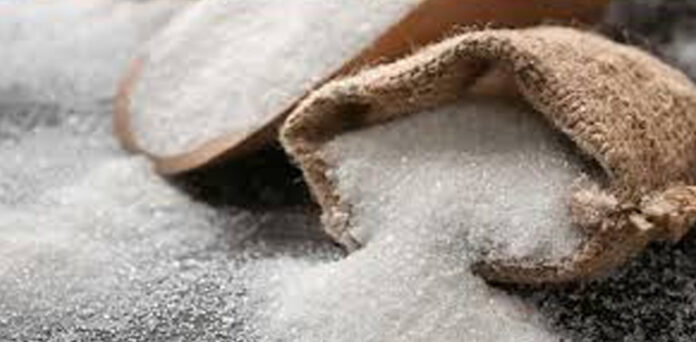Introduction
Sugar—it’s not just something you stir into your chai. In Pakistan, it’s become a symbol of economic unrest, political blame games, and public frustration. Once again, the price of sugar has started climbing, and this time, Prime Minister Shehbaz Sharif isn’t just watching from the sidelines.
He’s taken a bold step, ordering a full-fledged crackdown on sugar hoarders and market manipulators. It’s a move that aims to protect consumers from artificially inflated prices and bring some sanity back to the market. But what does this mean for you, the economy, and the sugar industry as a whole?
Let’s break it all down.
Background of the Sugar Crisis in Pakistan
Sugar isn’t new to controversy in Pakistan. For over a decade, the country has seen wild fluctuations in its price—sometimes within just a few weeks. These fluctuations are often blamed on poor governance, lack of regulation, and powerful interest groups.
Even when the sugarcane crop yields are high, prices rise inexplicably. The underlying reasons? Hoarding, collusion, and sheer greed.

20 سالہ کنواری لڑکی کا رشتہ | ڈیمانڈ : لڑکا ہمیشہ مجھے پوری زندگی خوش رکھے گا۔ | رابطہ کرنے کے لیے یا آپ مجھ سے بات کرنا چاہتے ہیں، تو اس لنک پر کلک کریں 👇
📲 https://cutt.ly/RrWFO5lq
وہاں سے آپ کو میرا نمبر بھی مل جائے گا!
اور ہاں! ہمارا واٹس ایپ چینل بھی جوائن کریں 👇
🌐 https://whatsapp.com/channel/0029VbA8Bza8kyyOsKnmpr1m
جہاں ہم نہ صرف اچھے رشتے ملاتے ہیں بلکہ رومانوی اور پیار بھری ویڈیوز بھی شیئر کرتے ہیں ❤️📹
جو آپ کے دن کو اور بھی خوبصورت بنا دیں گی۔
محبت کی تلاش ہے؟
ایک اچھے دل والے لڑکے یا لڑکی کی چاہت ہے؟
تو ابھی سے ہمارا حصہ بن جائیں…
محبت کے سفر کا پہلا قدم یہی ہو سکتا ہے! 💍✨
مجھے فالو کریں، اور اس پیار بھری دنیا میں خوش آمدید! 🌸💫
Why Sugar Prices Keep Spiking
Prices don’t rise in a vacuum. Here’s what contributes to the madness:
- Seasonal demand: Eid, Ramzan, and wedding season—sugar sees huge demand spikes.
- Export manipulation: Sometimes sugar is exported when domestic supply is already low.
- Hoarding tactics: Warehouses are stuffed with bags of sugar to create fake scarcity.
The average Pakistani pays the price—literally.
PM Shehbaz Sharif’s Latest Directive
In a high-level meeting this week, PM Shehbaz called out the sugar hoarders in no uncertain terms. His message was clear: No one will be spared.
The Urgency Behind the New Order
With inflation still biting and a budget just around the corner, PM Shehbaz is under pressure to stabilize food prices. Sugar is one of the most visible price indicators, and a spike in its price causes political and public outcry.
Targeting Hoarders and Profiteers
The PM has directed intelligence agencies, local administrations, and the Federal Investigation Agency (FIA) to track and take down:
- Hoarders storing beyond legal limits
- Middlemen who create artificial scarcity
- Mill owners involved in shady pricing tactics
Understanding the Sugar Mafia
What is the “Sugar Mafia”?
It’s not a Netflix series—it’s very real. The sugar mafia consists of
- Mill owners
- Influential politicians with stakes in sugar mills
- Middlemen who manipulate supply chains
- Distributors who hike prices at retail level
Past Allegations and Scandals
From 2020’s explosive Sugar Inquiry Report to ongoing investigations, several big names in Pakistani politics have been accused of benefitting from sugar cartels. Unfortunately, enforcement has often fallen short.
The Impact of Hoarding on the Market
Artificial Shortage and Price Hike
Hoarding isn’t just bad business—it’s economic sabotage. By reducing availability, prices surge, and the poor suffer the most.
How it Affects Common Households
A bag of sugar going from Rs. 130 to Rs. 180 affects everything from morning tea to wedding desserts. The working class ends up cutting back on essentials.
Burden on Bakeries and Manufacturers
It’s not just homes—industries feel the sting. Bakeries, beverage manufacturers, and candy producers face higher costs, leading to product shortages and job cuts.
Government’s Crackdown Plan
Agencies Involved in the Operation
The FIA, district administrations, price control magistrates, and even intelligence agencies are being roped in to:
- Conduct surprise raids
- Monitor warehouses
- Track suspicious transactions
Technology and Surveillance Strategies
Modern problems require modern solutions. The government is using
- Real-time supply chain tracking
- Data from NADRA and FBR
- Drones for warehouse inspections in rural areas
Punishments and Fines
Those caught hoarding can face:
- Up to 3 years in prison
- Seizure of stock
- Heavy fines and license cancellations
Role of Provincial Governments
Punjab’s Model Enforcement
Punjab, being the largest sugar-producing province, is leading enforcement with its special teams and real-time reporting apps.
Coordination Between Federal and Provincial Authorities
For the first time in years, there appears to be serious coordination—a key factor for success.
Impact on Consumers
Will Prices Actually Go Down?
If enforcement stays consistent, prices could drop within weeks. But that depends on two things:
- Proper legal action.
- Transparent sugar supply monitoring.
Public Reaction and Expectations
The public wants more than statements—they want results. Early signs of price stability will be key to winning public trust.
Media and Public Discourse
TV Coverage and Newspaper Headlines
News channels have gone full-throttle, showcasing raids and warehouse busts.
Social Media Uproar
Twitter (X), Facebook, and WhatsApp groups are filled with videos of sugar stockpiles. Memes, outrage, and calls for reform are trending.
Economic Implications
Inflation and Food Security
Stable sugar prices help control inflation in related products: sweets, drinks, bread, and more.
IMF Concerns and Global Image
A mismanaged commodity sector looks bad to the IMF and foreign investors. This move helps restore credibility.
Lessons from Past Crackdowns
What Worked and What Didn’t
Past actions were often reactive, not proactive. This time, early data collection and tech use seem promising.
Importance of Consistent Policy
One-off raids don’t solve the problem. Continued monitoring and legal follow-up are essential.
Political Fallout
Opposition’s Response
Some parties claim this is a diversion tactic. Others say it’s a necessary evil. But all agree—sugar prices must be tackled.
Public Trust in Leadership
If prices fall, Shehbaz Sharif gains political mileage. If not, it could backfire as an empty promise.
Business Community Reaction
Retailers and Wholesalers Speak Out
Many wholesalers say they are innocent and being unfairly targeted. However, real-time audits will sort fact from fiction.
Traders’ Concerns About Supply Chains
Some fear over-policing may disrupt legitimate business. The government needs to strike a balance.
Long-Term Solutions
Reforms in Sugar Supply Chain
Digitize everything—from cane harvesting to retail. Transparency is key.
Strengthening Monitoring Bodies
Give more power to the CCP (Competition Commission of Pakistan), FBR, and FIA to regulate commodity pricing.
Public Participation and Whistleblowers
How Citizens Can Report Hoarding
Citizens can use
- CM complaint portals
- Local helplines
- Anonymous tip apps being developed
Government Helplines and Apps
A centralized app for commodity pricing and complaints is in the works.
Conclusion
PM Shehbaz Sharif’s crackdown is a welcome and long-overdue move. Whether it’s a game-changing reform or just political posturing will depend on execution. If the government stays on course and follows through with legal and economic reforms, this could mark the beginning of a more just and stable market for every Pakistani.
FAQs
1. Why is sugar so expensive in Pakistan?
Due to hoarding, artificial shortages, mismanagement, and market manipulation by powerful groups often referred to as the sugar mafia.
2. How can the public report hoarders?
Through provincial complaint portals, local administration hotlines, and upcoming whistleblower apps.
3. Is this crackdown politically motivated?
While critics may claim so, the economic need for price control is real and urgent.
4. What is the expected timeline for results?
If implemented seriously, price relief could be visible in 2–4 weeks.
5. Can Pakistan stabilize the sugar market permanently?
Yes, but only through consistent policy enforcement, transparency, and regulatory reforms.










